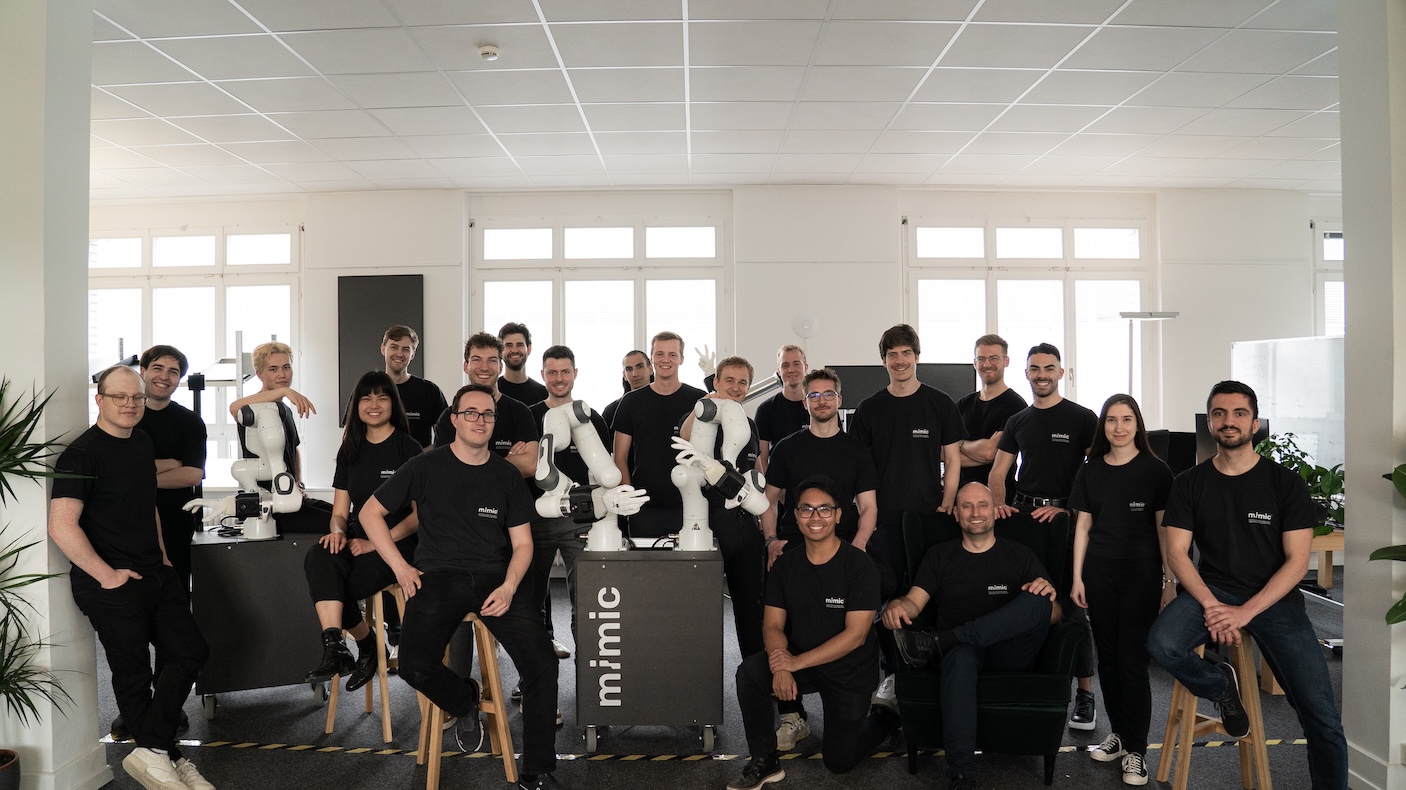How Abstract is Traction in Deep Tech?
Proving business traction for Deep Tech startups presents challenges that are unique within the world of VC. What is Speedinvest’s approach?
How we define business traction is one of the first questions we’re asked when we introduce ourselves as Deep Tech investors. There are, of course, many other mysteries surrounding the Deep Tech industry. That is why we decided to shine some light onto the infamously dark sector. To do so, Marcel van der Heijden and Alex Zhigarev of the Speedinvest Deep Tech team held an “Ask Us Anything” virtual session with founders.
Insights from our conversation, including how we define Deep Tech traction, thoughts on the AI & Machine Learning space, and advice for securing a strong follow-on investor can be read below.
FYI: If you want to attend future events organized by Speedinvest Deep Tech or have any questions you would like us to answer in future blog articles or AMAs, please sign up and share your ideas with us here.
#1 — How do we define traction in Deep Tech?
Stay tuned! We will release a dedicated blog article on Deep Tech traction soon.
For us to invest in a Deep Tech startup it is essential we see early signs of market/customer interest. We all love technology and new technology innovations — but we try hard to avoid investing in solutions looking for a problem.
Marcel: What needs to be understood in terms of Deep Tech traction is that most of the Deep Tech startups we are looking at are typically selling to enterprise customers. This implies long sales cycles until a multi-year contract is finally signed and recurring revenue can be booked. From our experience, we are talking about 6 to 12 months.
Building traction in Deep Tech starts often with early proofs of concept (PoCs), validating that the startup’s solution solves an actual, sufficiently valuable and immediate problem. These PoCs don’t necessarily need to be paid. As some of our key points of expertise in Deep Tech are in the fields of AI/ML we sometimes encounter free PoCs being done in order to accumulate and leverage more data. This can be a good strategy for the founders to enhance their product. However, it communicates a stronger interest and dedication by your customer if the underlying agreement is supported by financial commitments.
In general, we would always assess the probability of being able to convert PoCs into full-blown paying customers with long term financial/contractual commitments. This exercise gives us a better idea of the potential revenue pipeline laying ahead. Here we often do reference calls with the customers to paint ourselves a picture of the situation. How much pain is the problem causing? How engaged are customers with the solution provided? How much value is created by using the new tool? In addition, we tend to do reference calls with our network that could be potential customers but that have not yet engaged the startup to get a more unbiased view from the market.
Outside of companies targeting enterprise customers “top-down” we see a growing number of startups that “enter the enterprise” by building large/active communities of individuals (e.g. developers, IT operations, security, data scientists) around open-source or “freemium” products. We think this is a great and proven way to go to market. It allows the company, and us as investors, to get an early signal — with a better signal-to-noise ratio — around how interested customers are, how they use the product, what they need, etc.
We get really excited about founders who are fundamentally challenging today’s technology. However, for us to invest in a Deep Tech startup it is essential that some of those early customer validation signs explaining market viability can be observed.
#2 — What are your opinions on the Artificial Intelligence & Machine Learning market?
Artificial intelligence is at its root an enabling technology and the various forms of machine learning can be applied on top of a broad range of sectors and industries.
Alex: It is hard to define a sole standing AI and ML market. Artificial intelligence is at its root an enabling technology and the various forms of machine learning can be applied on top of a broad range of sectors and industries. So you cannot say the market for AI will see an improving situation because the demand for AI will increase. You have to take the area it is applied to into account.
Let us open an imaginative example. Think about smart pricing engines crunching through millions of customer observations to derive with a price tag enabling the company to charge at an even higher degree of price discrimination. We have two startups specializing in building a solution for two different sectors. Let’s say airline travel and eCommerce for electronics. On the surface both price engines want to optimize for the best price according to the individual customer’s willingness to pay, yet, in both of those sectors the underlying data and models used will be far apart from each other. Who would you believe to be in the winning market? In our current no-travel world it will certainly be the one in the electronics eCommerce space.
In recent months, we have observed the emergence of MLOps and AutoML, sectors that can be boiled down to be developer tools for machine learning engineers and data scientists. Considering these tools we anticipate a lot of potential by helping the current data-related workforce to make their work more efficient and easier to put into production.
#3 — What are the three questions a founder should ask an investor before signing a term sheet?
Our founding partner, Michael Schuster, has written a detailed blog article on this topic. If you are looking for a comprehensive guide on how to find and evaluate follow-up investors, check it out!
Back to our AMA and Alex’s top three:
Ask your investor what you can expect in terms of support beyond capital and which level of intensity the communication will have.
For example, will they quickly crunch through five slides of KPI reporting in quarterly board meetings or will they work diligently with you every week to help you remove obstacles on the path to growth?
Make sure to ask the investor about how much due diligence (DD) will be made before and after signing the term sheet.
Why? Talking to others could potentially make the deal more competitive. With a quick, signed term sheet some investors lock themselves into a certain degree of exclusivity to your deal. In extreme cases where they dislike certain aspects, they will find a way to drop their commitment leaving a blank spot in your round.
Ask the other side of your term sheet for intros to their portfolio founders.
Do your homework — research your potential investor! Talk with people who have experienced working side by side with this particular investor. They will be the best source to give you an honest glimpse behind the scenes.
Missed the AMA or have additional questions? Join our next Deep Tech event!
Sign up here to get updates about future events held by the Speedinvest Deep Tech team. We partner with extraordinary entrepreneurs, seasoned industry experts, and thesis-driven investors to fuel startups that shape tomorrow’s stack of technology.
Learn more about the Speedinvest Deep Tech team and sign up for our newsletters to get our exclusive content delivered straight to your inbox.












.svg)
